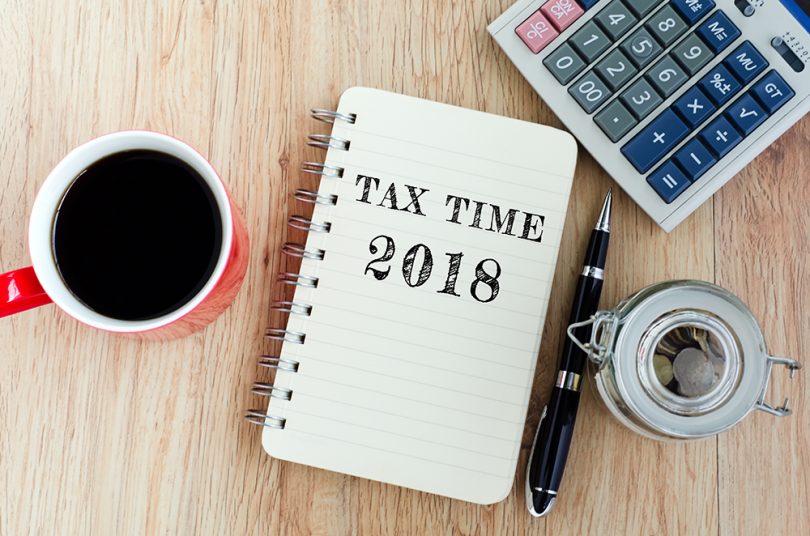
We all want to know what we can and can’t claim come tax time.
We’re fast approaching the busiest time of the year for accounting firms—tax time!
Whether you view the end of the financial year as an opportunity to reconcile, review and reflect on the year that’s been, or you simply view it as a pain in the backside, most of us are focused on one thing—to avoid paying any more tax than our fair share.
As a chartered accountant with more than 20 years’ experience, I’m well-versed in what public servants and small businesses can and can’t claim come tax time, so I thought I’d share some of the most common deductions and concessions many don’t realise they’re able to claim.
Tax deductions for public servants
The first thing every worker needs to consider when it comes to deductions is the three golden rules the Australian Taxation Office (ATO) uses to assess the validity of a work-related claim, which are:
- You must have spent the money yourself and weren’t reimbursed
- It must be directly related to earning your income, and
- You must have a record to prove it.
Because most Government departments and agencies supply most of the equipment required to perform your role, supply uniforms at no charge and cover any costs associated with travel, many public servants simply assume they can’t claim any work-related deductions come tax time.
While this is true to a degree, there are some circumstances where you may still be eligible to claim a work-related deduction.
Laundry expenses
While you can’t claim laundry expenses on plain clothing you wear at work, if you wear a compulsory uniform that is distinctive to your job or are required to wear protective clothing to perform your role, you may be able to claim a deduction for the cost of buying or cleaning it. You’ll just need to ensure you have written evidence (for example, diary entries and receipts) if you’re claiming more than $150 and your total claim for work-related expenses exceed $300.
Self-education, memberships and other expenses
Many public servants don’t realise that if they undertake self-education studies or professional development that is directly related to their current job, the expenses may be deductible. You’ll just need to ensure it is not ‘generally related’ to your job or is designed to help you find a new job.
Additionally, if you’re a union member or a member of a professional association, your membership fees should also be deductible, as should the cost of any seminars or conferences you attended at your own expense, along with the purchase of any technical or professional publications that relate to your employment.
Car expenses
While the daily commute between your workplace and home is considered a private expense, if you are required to travel between different branches or offices during the course of your duties where it’s not paid for or reimbursed by your employer, you may be able to claim some car expenses. Just make sure you keep a record of the expenses using the logbook or cents per kilometre method to calculate how much you can claim.
Home office expenses
If you are required to work from home in the course of your employment, you may also be able to claim a percentage of the running costs of your home office.
While you can’t claim the cost of rates, mortgage interest, rent or insurance, you may be able to claim things like depreciation of office equipment, work-related phone calls, internet access charges and electricity for heating, cooling and lighting. You will, however, need to ensure you maintain a diary of your home office usage so you can accurately calculate your claim, remembering you can only claim a deduction for the work-related portion of the overall cost.
Tax deductions and concessions for small businesses
If you run a small business, generally you can claim deductions for operating and capital expenses like advertising, phone costs, travel, car expenses, a home office, salary, wages and superannuation contributions, provided they are not considered to be a private expense.
While these are all common deductions most small businesses are already aware of, there are a few other expenses you may be able to claim that you didn’t know about.
Assets that cost less than $20,000
The instant asset write-off threshold is one deduction every small business should take advantage of. The initiative allows small business entities to immediately deduct the business portion of most business assets that cost less than $20,000, provided the asset was first used or installed during that financial year.
While not yet law at the time of writing, the 2018-19 Federal Budget announcement also included a proposal to extend the initiative for another 12 months until 30 June 2019, which is great news for small businesses who are looking to invest in new equipment or technologies in the new year.
Prepaid expenses
Prepaying expenses can also be a good way to increase your allowable deductions come tax time. If you can pay upfront for any expenses that relate to services you will use in the next financial year (for example, insurance policies, utility bills or professional subscriptions) before 30 June, you may be able to claim a deduction for the current financial year.
Bad debts, bank fees and loan interest
If you’re unable to recover money owed to you by some customers, you may also be able to write them off as bad debts and claim them as a deduction, however claiming these can be tricky so it’s worth consulting your tax advisor first.
It’s also worth considering if the fees and interest from any business accounts and loans you have can also be claimed as a deduction.
Small business concessions
Aside from the various deductions you may be able to claim, if you are a sole trader, partnership, company or trust with an aggregated turnover of less than $10 million and are considered to be a Small Business Entity, you may also be eligible to claim a range of tax concessions.
The Government offers various income tax, capital gains tax, GST and excise, PAYG instalment, fringe benefits tax and superannuation concessions designed to reduce the tax burden on small businesses and support them to invest in and grow their businesses, which are well worth investigating.
It’s worth speaking to a professional
In no way is this an exhaustive list of the deductions or concessions you may be eligible for.
No matter what industry you work in, there may be a range of things you’re not claiming at tax time that you should be—and the best way to find out is by speaking to a tax professional. Even more, the cost of managing your tax affairs is also deductible, so there’s a good chance it’ll even end up paying for itself!
Andrew Sykes is a Chartered Accountant and partner at RSM in Canberra with more than 20 years advising individuals and businesses on taxation, growth and improvement strategies.
With many of RSM’s Canberra-based clientele employed in either the public service or running their own small business, the team at RSM are experts in developing proactive strategies to ensure their clients always get the best possible outcome at tax time. Contact RSM in Canberra to find out how they can help you.
Original Article published by Andrew Sykes on The RiotACT.



What's Your Opinion?